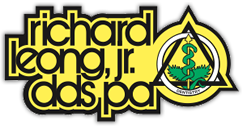What Do You Need to Know About Dental Extraction Aftercare?
Do you need a dental extraction? Whether crowding, dental decay, or another oral issue is the reason behind the procedure, take a look at the top aftercare questions patients have.
How Long Will It Take to Heal?
You want to return to your pre-extraction life as soon as possible. But you know your mouth needs time to heal. How long will this take? In general, it can take from a week to 10 days to heal. Even though this is the typical time frame, factors such as the complexity of the extraction, surrounding decay/infection, your general health, and the ability to follow the dentist’s directions can impact healing.
Will the Area Bleed After the Extraction?
Like any other wound or surgical site, the gum area will bleed after an extraction. If the dentist places a gauze pad in the area, leave it in place for the recommended time – most likely between three and four hours.
Continued bleeding that persists past the first few hours post-extraction, is heavy, or starts again after stopping requires the dentist’s attention. Contact the dentist or oral surgeon for instructions or to make an appointment for an assessment.
When Can You Return To Normal Activity?
Even though it can take more than a week for your extraction area to heal, most patients can go back to work the next day – provided their job doesn’t include serious physical activity. Talk to your dentist about how long you should wait to return to strenuous exercise or other similar types of activities. You may need to reduce your activity level over the first few days.
Will the Mouth Area Swell?
Some patients experience swelling after this type of dental procedure. Ice packs (immediately after the extraction) may help to reduce puffiness.
Will the Extraction Area Hurt?
You may experience some pain post-extraction. The amount of pain you have depends on the complexity of the extraction, your body’s ability to heal, and the way you handle this type of discomfort.
The dentist may prescribe a pain medication to make this time easier. Follow the dentist’s instructions and do not take more than the prescribed amount. If you don’t want to take prescription pain relievers, or the dentist doesn’t prescribe this option, you can try over-the-counter medication.
Talk to the dentist before you take any OTC (over-the-counter) pain reliever. Some medications may increase the bleeding risk or interact with prescriptions you currently take.
Along with medication, ice packs or cold compresses may relieve some of your oral discomfort. Wrap an ice pack in a thin towel and place it on your face (not in your mouth) for around 10 minutes at a time.
What Can You Eat After an Extraction?
Stick to soft foods that won’t cause added discomfort or add injury to the area. Soup, smoothies, scrambled eggs, yogurt, oatmeal, and mashed potatoes are easy options to try after your extraction.
Avoid tough meats (these require you to chew strenuously), tough or hard bread products, hard candy, sharp chips, and hard pretzels. Along with these foods, stay away from anything overly spicy. Heavy spices can sting or irritate the area.
Does an Extraction Require Aftercare?
Will you need to return to the dentist after your extraction? The answer to this question depends on your individual needs and health. If the extraction is a simple procedure and you have no complications, the dentist may not ask to see you. But if your oral issues are complex or you have an additional problem, you’ll need a checkup or continuing dental care.
Do you need a dental extraction consultation? Contact the office of Richard W. Leong Jr. DDS, PA, for more information.



